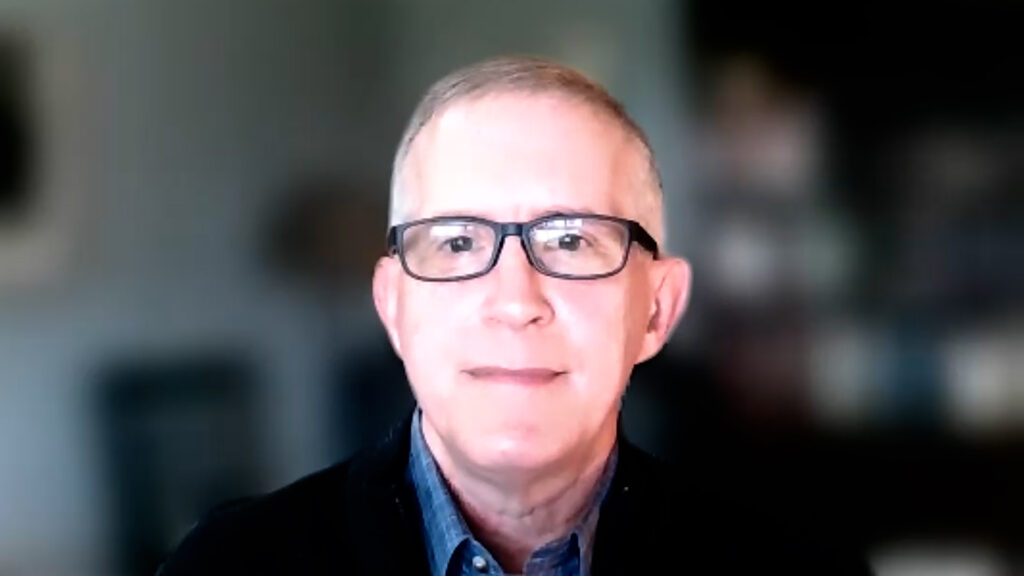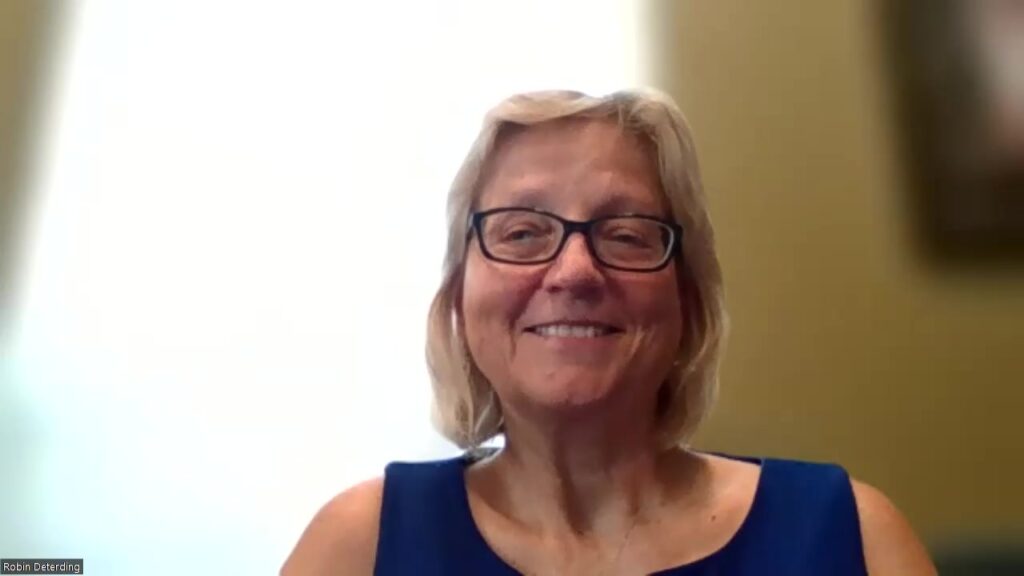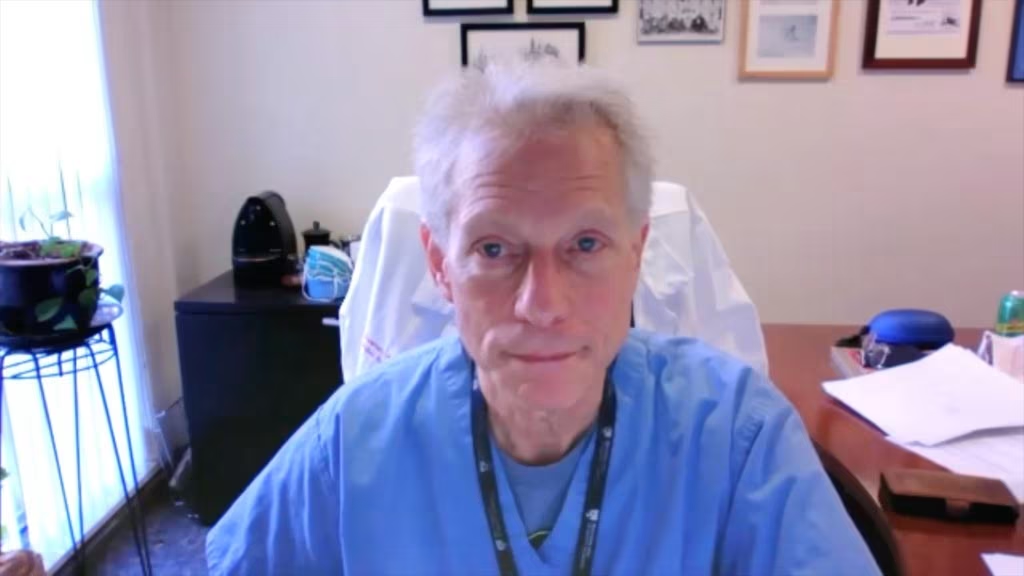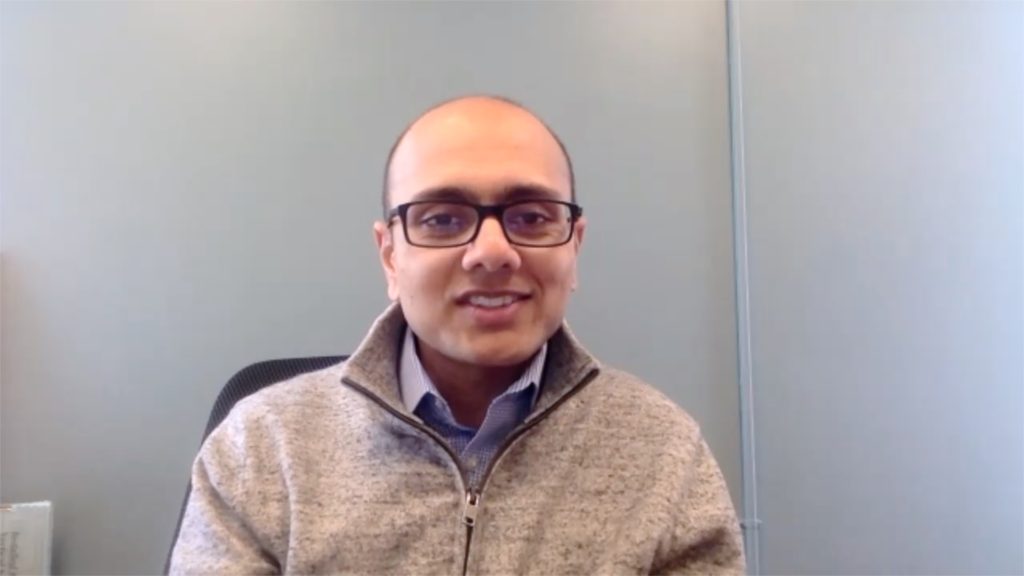touchRESPIRATORY coverage from ERS 2024:
The BETTER-B study, recently presented at ERS and published in The Lancet Respiratory Medicine, provided new insights into the management of severe breathlessness in patients with chronic respiratory diseases such as COPD and Interstitial Lung Disease (ILD). Severe breathlessness is a debilitating symptom that significantly impacts the quality of life for millions of people worldwide, yet there are currently no licensed medications to effectively address it outside of Australia. Given the clinical challenges and limited treatment options, clinicians often resort to off-label use of medications like mirtazapine, a widely prescribed antidepressant that appeared promising. Despite its initial promise, the study found that doses ranging from 15 to 45 mg of mirtazapine failed to provide significant relief compared to a placebo. Additionally, the findings highlighted potential adverse effects and increased healthcare costs associated with its use.
In this interview, Prof. Irene Higginson, the principal investigator of the BETTER-B study, shares the rationale behind the research, discusses the findings, and explores the implications for clinical practice. She also shares her thoughts on the next steps for research to improve the quality of life for patients experiencing severe breathlessness.
Associated abstract and publication:
Higginson I et al, Mirtazapine to alleviate severe breathlessness in patients with COPD or ILD: an international, multicentre, double-blind, randomised, placebo-controlled, phase 3 mixed-method trial (BETTER-B). Presentation ID 3721. ERS 2024
Further resources:
BETTER-B website: https://betterbreathe.eu/
Managing breathlessness:
- Managing breathlessness at home
- Managing breathlessness in advanced illness | Feature from King’s College London (kcl.ac.uk)
Questions:
- What was the rationale behind the Better-B study? (00:06)
- Tell us about the Better-B study and how the findings may impact clinical practice (07:34)
- What additional research is currently being conducted on breathlessness? (12:16)
Disclosures:
Prof. Higginson discloses the following: Grant/research support: European Union Horizon 2020 programme; Cicely Saunders International (charity), National Institutes of Health and Care Research (NIHR), UK, UKRI (Medical Research Council) European Union Horizon 2020 programme; Cicely Saunders International (charity), National Institutes of Health and Care Research (NIHR), UK, UKRI (Medical Research Council); Advisory board: National Institutes for Health and Care Research, UK, HSDR grant committee.
This content has been developed independently by Touch Medical Media for touchRESPIRATORY. It is not affiliated with the European Respiratory Society (ERS). Unapproved products or unapproved uses of approved products may be discussed by the faculty; these situations may reflect the approval status in one or more jurisdictions. No endorsement of unapproved products or unapproved uses is either made or implied by mention of these products or uses by Touch Medical Media or any sponsor. Views expressed are the speaker’s own and do not necessarily reflect the views of Touch Medical Media.
Transcript:
Q: What was the rationale behind the Better-B study?
So we started on the better be study, and it was a program of work, supported by the European Union Horizon 2020, and they supported a program of work to try and improve the management of breathlessness. And we wanted to study breathlessness because it’s an extremely common problem across many diseases, but particularly respiratory diseases, and there aren’t really very many treatments for it. It affects seventy five million people across the world, two million people in the UK, fifteen million in Europe. And apart from Australia, believe it or not, there are no licensed medicines for the management of breathlessness. So everything that everybody tries to use is off label. Once you’re beyond the control of the disease itself and doing anything to alleviate the disease, there are no medicines beyond morphine, which is licensed only in Australia for the management of breathlessness.
I think one of the other problems is that breathlessness is a very difficult and distressing symptom. It’s very difficult for the person affected. It’s actually quite socially isolating because they can’t talk or do things. It’s quite often an insidious symptom, so it creeps up on people slowly and gradually eats away at what they do. Interestingly, often somebody who has breathlessness and and it’s often in the most advanced stages of respiratory illness that we focus on. People often have other symptoms. So somebody with breathlessness will often have about twelve to fourteen other symptoms, including fatigue, weakness, sometimes cough, and so on. And it’s it’s very distressing. It’s a major cause of emergency hospital admissions, particularly when it happens at night. and it’s very distressing for the family members who watch somebody with breathlessness thinking that, you know, feeling terrified and and hopeless. And it’s a major, because of the emergency admissions, a major cost to healthcare services. And it’s really distressing for clinicians too, because they see it and they want to do, quite rightly, something about it. So of course, meaning well, clinicians do go off label to try and do things, and we did we looked at the literature around this, and it’s quite common. And before we did the actual trial that we did into breathlessness, we did a survey of clinicians to see what they were using.
Now that there are approaches to breathlessness that do work, which are not medicines. And one of the things that I think is really important to stress is that the first line of treatment should be trying the non medicine approaches, so the non pharmacological approaches. So trying things like muscle strengthening, breathing training, and also, of course, optimizing the management of the underlying disease itself, because all of those things help. And think importantly, that breathlessness is not only about the lungs, the muscle strength is really important. So actually, if you think about it, if what I used to say to patients is if you’re an athlete and you run for the bus, then you don’t get out of breath. If I run for the bus, I’m out of breath. So it’s not nothing to do with the athlete’s lungs being better than my lungs. It’s simply that the athlete’s muscles are better than my muscles. And respiratory physiology tells us that fit muscles are much more efficient in how they use oxygen, so they don’t need so much for the lungs. So it’s very important to have fit muscles to manage breathlessness.
So that’s a first important step. And then there are other ways that you can manage breathlessness in the way that you breathe. Also, blowing cold air on the face, here often lessens the feeling of breathlessness. So there’s quite a lot of non drug treatments that are actually really important. And we did, we did a survey across Europe of doctors in respiratory medicine and doctors in palliative medicine and asked them what guidelines they were following and what they were using. And we gave them little vignettes of three cases, one of somebody with chronic obstructive pulmonary disease, one of somebody with interstitial fibrotic lung disease, and one of somebody with lung cancer. And we asked them what they do to manage breathlessness in those cases. And you could see from that work that quite often they were resorting to medicines that are unlicensed because that’s really all there is. So medicines off label, as we would call it, using it. It’s a licensed medicine, but you’re using it for another purpose.
Respiratory doctors and, palliative doctors were using mirtazapine, which is the drug that we tested off label. So nineteen percent of respiratory physicians and eleven percent of palliative physicians would recommend an antidepressant, which would include mirtazapine but other antidepressants, always or often for severe breathlessness in chronic obstructive pulmonary disease. And the figures were pretty similar for interstitial lung disease. And the other interesting thing is that worldwide, the prescriptions of antidepressants and in particular, mirtazapine has increased hugely across different health care settings.
So, for example, in Australia, aged care facilities, usage rose from eight to twenty one percent among residents. Now there may be very good reasons for that to aid sleep, to aid depression, to aid other symptoms because mirtazapine is a antidepressant and an anti panic drug. But, nevertheless, it’s interesting to see how it’s increased. And there are worries because in a way, the other medicine that people have quite often used in in breathlessness and thought it worked is, the group of drugs called benzodiazepines, the tranquilizers. And, again, the evidence around those is not strong. There are more studies than there are for antidepressants, but the evidence for those is not strong, and yet people are using them because there’s nothing else. And there is a risk that they can be harmful. And certainly in in many areas of respiratory medicine, there’s a real concern that actually they’re not helping people because they’re making people do less.
And actually, that means that their muscles get weaker and then that sends them on in a spiral of disability. So actually, you have to be quite careful in thinking about the medicines that you do use and trials are actually essential. We can’t just rely on trying things in practice and hoping that they work. We have to do proper comparative trials, particularly for breathlessness because it’s quite fluctuant. So you might kind of optimistically, because you’re on a fluctuation, think that something’s working, and you might put down a deterioration to the deterioration of the condition rather than the medicine. So it’s quite important to have a proper placebo controlled double blind trial.
Q: Tell us about the Better-B study and how the findings may impact clinical practice
We ran a a randomized controlled trial, double blind, so the investigators didn’t know which group people were in, across six different countries of the world, and sixteen different centres across those countries. And we recruited people who were severely affected with breathlessness, either with chronic obstructive pulmonary disease or, interstitial lung disease, and they were quite severely affected. We didn’t want anybody who was mildly with breathlessness because we felt that the first line for them should be the nondrug treatment. And so we chose people with what was called the modified, MRC respiratory score of three or four, which basically meant that you couldn’t walk very far or you actually couldn’t walk at all. So you could walk only a tiny bit or not at all was was our kind of level, and you might even be breathless at rest. So those were the people that we included in the study. And we gave them, tablets matched for placebo or the mirtazapine in containers, and they took them for fifty six days, so two months, essentially. And we measured how their symptoms were, their hospital use, any adverse events, and then we followed them up for a hundred and eighty days. But we looked primarily at how they were at fifty six days. And, if they wanted to ask for mirtazapine after day fifty six, they could go to their own doctor and ask for it, but we didn’t tell them which group they were in. And they didn’t know, and it’s only now that we’ll be telling people which groups they were actually in now that the results have come out. And then we used the trials unit to do the independent randomization, and then we looked at the data, and we didn’t know which was group was which when we analyzed it. We analyzed it, and then we revealed which group was which.
What we found was that contrary to earlier work and hypotheses that mirtazapine might work and that there had been some case studies suggesting that it would, contrary to that, actually, it didn’t improve severe breathlessness. And, there really wasn’t any difference between it and the placebo group in terms of the symptoms or quality of life or other aspects. But the people with mirtazapine did have more adverse events. So they had more side effects that they were reported, and that difference was quite, marked. So, if I just check my numbers on that, there were, seventy two, adverse events out of a hundred and thirteen people in the mirtazapine group, versus a hundred and sixteen in out of a hundred and ten people in the placebo group. So quite a difference in terms of adverse events.
Now serious adverse events weren’t different, and very serious adverse events well, there was only one, and that was in the mirtazapine group where where we did suspect it was related to that. So there wasn’t causing any serious harm, but it was causing some more side effects. And the other important interesting secondary outcome finding is that hospital admissions were also higher in the mirtazapine group. And, in fact, emergency attendance, although it was low across the study, was actually double in the group that had mirtazapine and not.
So our conclusion was that it doesn’t help breathlessness, and it might cause slightly more adverse events, and it might cause more use of health services.
So our view is that taking this result together and another trial that was done on a different antidepressant recently in Australia, probably these antidepressants are not ones that will help breathlessness, and we need to go back again to work out what is going to help breathlessness.
What we can say for clinicians now is really focus on the non pharmacological treatments. And if you do use anything off label, then really monitor it carefully and ideally do it as part of a of a trial. What we need to say to pharmaceutical companies and to research funders is please support these trials into medicines to help breathlessness because there’s seventy five million people in the world that could really benefit from it, and all the clinicians caring from them would would really like to have that.
Q: What additional research is currently being conducted on breathlessness?
Because the the evidence around morphine for breathlessness, although it’s licensed in Australia, is is is there there is what you might call limited or weak evidence to support morphine. There’s been a Cochrane review that shows that morphine is a benefit, but, but it’s quite weak, and there’s been some trials in Australia. So there’s a very big trial going on called MABEL. In fact, we’re partners in that study, being led from Hull York. And that trial will be looking at whether morphine helps breathlessness in this group of patients, which will give us a a more definitive answer and I think help decide countries whether to license morphine for it or not, which I think would be beneficial because if it was, then we’d know a better answer.
Those are the biggest studies I’m aware of.
We’re keen to almost take a stop back and look. There’s a study that’s been fairly recently published in from America looking at steroids in cancer for breathlessness.
Again, steroids are very frequently used to manage breathlessness off label. The bad news is that in that study, rather like our metazepine study, the steroids don’t seem to benefit compared to placebo and seem to have slightly more adverse events.
So that’s from, David Hui who who is, in in a a leading palliative and and cancer clinician at MD Anderson.
Interviewer/Editor: Nicola Cartridge
Cite: Higginson I. Mirtazapine does not alleviate severe breathlessness: Insights from the BETTER-B study. touchRESPIRATORY. September 20, 2024.










